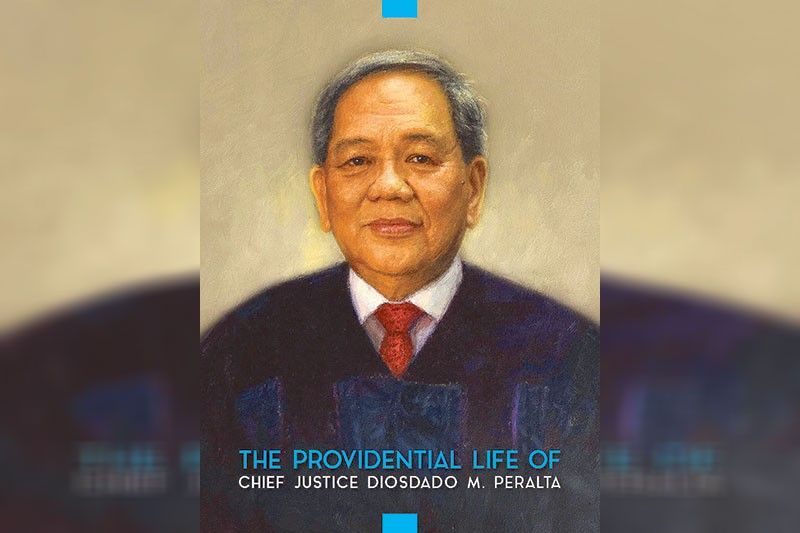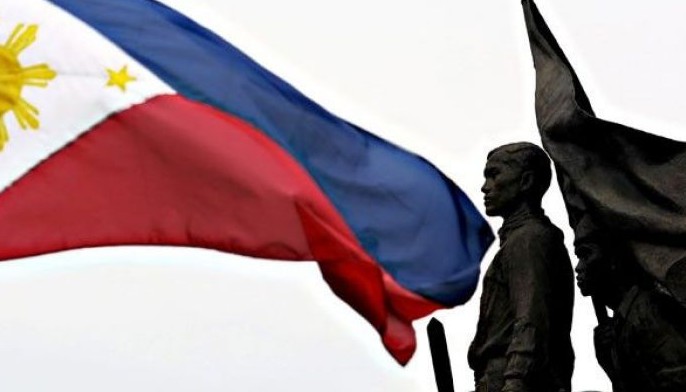Crafting life stories


While presently working on a couple of books — on self-made men who both triumphed over financial crisis before peaking in their respective careers — I realized that I’ve interacted with many fine individuals whose life stories I’ve had the honor and pleasure of crafting. They’ve represented disparate fields of endeavor — from art to finance, the miltary, science, business, governance, religious faith, NGO advocacy, health and hospital management.
Starting from way back in 1998, the list includes Gen. Renato de Villa, National Artist Ben Cabrera (a bio co-written with Cid Reyes), Jose B. Fernandez Jr., Alfonso T. Yuchengco (completing a bio started by Nick Joaquin), Bishop Federico Escaler, S.J., Don Francisco “Paquito” Ortigas, Jr., Utomo Josodirdjo (who pioneered modern accounting in Jakarta), and Jejomar C. Binay (co-written with Joey Salgado).
Other outstanding Filipinos who essayed their own memoirs that I helped construct, style and edit were insurance whiz Bobby Madrid, heart surgeon Dr. Jorge Garcia; Capitol Medical Center founder Dra. Thely Navarrete Clemente, UP’s master engineer Filemon T. Berba, Jr., Calamba Medical Center founder Dr. Jose O. Juliano, and Vicky Garchitorena.
The latest biography I’ve authored adds a supreme A-lister. The Providential Life of Chief Justice Diosdado M. Peralta was published in time for his retirement last March.
Happily, with regards this last, it was then Court Administrator Jose Midas P. Marquez who was instrumental in having me meet up with then CJ Peralta to write his bio. A month ago, Midas himself gained appointment to the SC, making him one of the two youngest Associate Justices.
Designed by my usual partner Orlando Punzalan and printed in hardcover format by House Printers, Inc., the book also relied on the collaboration of Attorneys Bud Zenarosa, JP Aldon and Karen Martinez of then CJ Peralta’s staff, as well as his daughter Atty. Dorothy Peralta.
Here’s an early passage from the book that serves to foreshadow the dramatic hand of providence:
“On Saturday nights, Peralta would leave school at 9 p.m. and take his service car for a one-hour drive to the town of Cardona in Rizal Province, about 42 kilometers east of Manila. He’d park it at a rented garage and ride a boat for over an hour to the middle of the lake, where there was a rest house amidst the fish pens. For the weekend, he would take over the duties of the resident manager, who would return early on Monday.
“But that Sunday, a typhoon broke, and persisted for six days and nights. At that time, there was no means of quick communication. All of the boats were rendered useless, so that he was stranded and had to wait it out through the storm’s fury.
“He grew despondent, fearing that his professors would mark him absent each day. The regular fish pen manager and his crew only managed to return by speedboat on Friday, and he still had to help them assess all the damage to the wooden pens and all their boats.
“Driving back to Manila, he was convinced that he would have to file a leave of absence from all his classes, lest he simply be dropped from the rolls. Even then, it would mean losing a semester, and delay his graduation by as much as a year.
“No matter how he prayed as he drove home, he was certain that he had already exceeded the maximum number of absences allowed even working students.
“To his pleasant surprise upon reporting back at UST on Monday morning, he learned that the university had cancelled classes for the entirety of the previous week. Pope Paul VI, who had visited Manila and delivered an address to UST’s students in 1970, had passed away at the Vatican on August 6.
“The Dominican-run Pontifical University of Santo Tomas … revered its special ties with the Pontiff. The Rector waived classes for a week in tribute to Pope Paul VI.
“Diosdado took that providential act to mean that he was still destined to become a lawyer, just like his father. All his life, he had been told that his name was Spanish for ‘God-given.’ Now here was one instance when it seemed to apply appropriately for him indeed.
“And that early, he felt that he could even be destined to become not just a lawyer, but to rise indomitably in the professional practice of law as to reach the highest echelons of the judiciary.”
Even Dado’s first meeting with the lady he would marry proved fateful. A judge known for his strict observance of court hours had surprisingly called for a recess.
Then Fiscal Peralta recalls:
At a hallway, I ran into Assistant Solicitor General Oswald Agcaoili, whom I knew. An attractive lady was with him, and we were introduced. I was smitten.
“Imagine, I told myself. A judge who never allows recess asks for one himself. And it gives me this opportunity to meet a lady I instantly liked! It could only confirm the validity of my name, as the providential happenstance was God-given.”
The narration continues: “He immediately pressed suit. The lady was Atty. Fernanda C. Lampas, who was also a certified public accountant. To hear her recount that fateful day, it appears that she herself thought it had all been scripted by destiny.”
Well, decades later, their four children would share their musical talents in the farewell rites for their father at the Supreme Court.
“Dorothy or ‘Dottie’ was followed by twin boys, JC and Tommy, then the youngest, J.I. … They all developed musical proficiency at a young age, thanks to their mom who had them go through piano lessons. It helped as well that their father had always been known for a good singing voice. Besides enjoying painting, Dottie now plays the flute, while JC plays the violin and Tommy the clarinet.”
Atty. Dado had first served as a Fiscal in 1987 in his native province of Ilocos Norte. Assigned to Manila a year later, he gathered awards for excellent performance.
From the Regional Trial Court, he was appointed as Associate Justice of the Sandiganbayan in 2002, and became its Presiding Justice in 2008. He was credited for the highest number of cases decided on the merits, owing to innovations he introduced.
Unfailing humor, diligence and a passion for work and teaching characterized Diosdado M. Peralta.
On January 13, 2009, he was named as the 162nd Associate Justice of the Supreme Court. He impressed his colleagues with his unrelenting focus on the tasks at hand, as much as his mastery of criminal and remedial law. Ten years later, in 2019, he was named Chief Justice.
Now Associate Justice Midas Marquez, who had become a traveling companion on overnight trips all over the country, relates:
“His taking pains in going around the country despite his very busy schedule in Manila showed his passion in teaching, urging and helping the judges comply with the initiatives of the Court, obviously not for his personal gain, but for the benefit of the judges, and ultimately the court users and the general public.
“Accordingly, he came prepared as Chief Justice and hit the ground running. He immediately implemented his Ten-Point Program. (H)e ensured the implementations of the Revised Rules of Civil Procedure and Evidence and continued to lecture on them despite the pandemic.”
Then Associate Justice Alexander G. Gesmundo, who succeeded as Chief Justice, weighs in:
“Amidst the Covid-19 pandemic, the swift, decisive and fearless action that CJ Peralta took to keep the judicial system grinding while ensuring the health and well-being of our justices, judges and personnel set him apart. He steered the judiciary in the untested waters of online hearings and proceedings.”
On March 27, 2021, turning 69 years of age, Chief Justice Diosdado M. Peralta chose to retire from the highest post in the Philippine judiciary, a year earlier than necessary.
He continues to author books for the enlightenment of students and practitioners of the law. In nearing seven decades of life and half a century of service to country, his achievements spell his legacy.
Chief Justice Diosdado Peralta sums it up:
“I have faith in the thought that I gave my all in giving the Filipino people the kind of justice that they deserve.
“Given every challenge and difficulty that the Judiciary faced these past months, I believe I have done everything within my authority as Chief Justice to leave behind me a better and improved Judiciary. I have led, and lived, by example. I look forward to the world outside the Supreme Court with the thought that, at my age, life is still full of possibilities.”



















